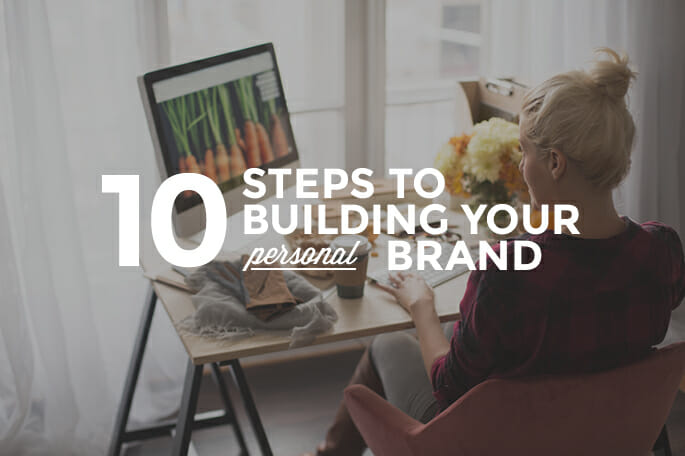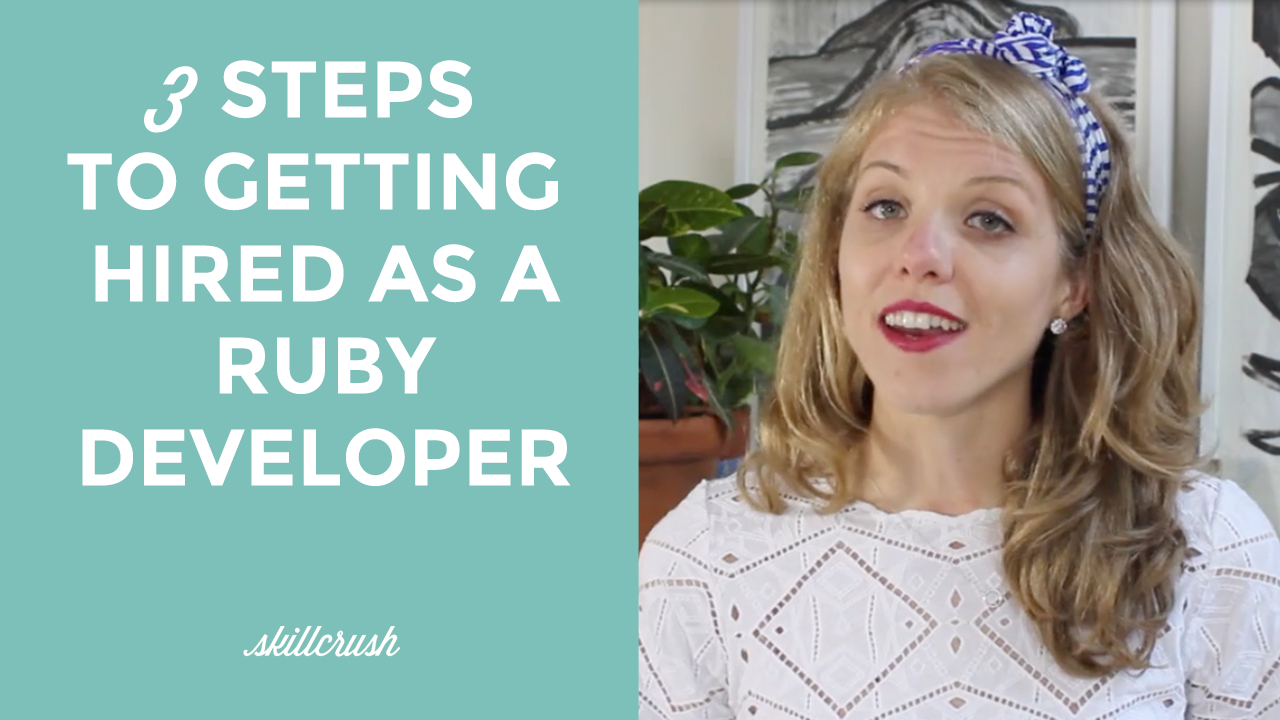10 Ways to Build Your Personal Brand (And Why You Should)
Add this to the top of your freelance to-do list.

The term “personal brand” has become a buzzword recently. So what is it, exactly? Your personal brand is how people see you; how they’d describe you—similar to how people describe famous people or companies. It is the set of values and characteristics that describe who you are and guide your choices—in work and in life. Your personal brand is what makes you, you.
In a tech career, your personal brand isn’t just your style – it’s not just the colors you use in your logo or the bold fonts featured on your portfolio – it’s that je ne sais quoi that people (and paying clients!) know you for. If Oprah’s personal brand is founded on her empathy, then a web developer’s personal brand might be based on her solution-oriented approach.
Being aware of, and ultimately in control of, your personal brand is an essential component of building a successful career—and especially a successful freelance career in tech. It’s a guiding statement that can help you make personal and professional decisions. A solid personal brand helps people understand who you are, what you offer, what you value, and the quality of work they can expect from you. It is your reputation.
In the past, your reputation may have been familiar only to those you actually know, such as friends, family members, and colleagues. But the Internet has made everybody’s reputation that much more accessible. And with platforms like GitHub and CodePen making it possible to publicly share your work in ways that weren’t always possible for developers, there is ample opportunity to develop your personal brand.
Personal branding isn’t just about landing clients – it’s about landing the RIGHT clients. The ones who are on board with your mission, who work in the same style that you do, and who are excited to bring your unique personality and vision to their project.
Wondering how to be proactive about building your personal brand? These tips are a great place to start:
1. DEFINE YOUR BRAND
Take out a piece of paper and write down the words and values that people would use to describe you and your business. Be honest and choose words that are positive and authentic to who you are and what you offer your clients.
Are you all about timeliness and meeting (or beating!) deadlines? Or maybe you are known for counseling clients through every step of the process, from moodboards and site maps, to content and QA.
2. HAVE A SPECIALTY
Specializing in a skill that is relevant to your field—and being vocal about that!—will help you stand out in the crowd. Companies call this a point of differentiation—consider how your brand (in this case, you) is different from everyone else “on the market”. Why should people choose you over everyone else?
Maybe you are passionate about making sites responsive or integrating them with plugins and APIs. Or maybe you love building sites for musicians or local artists.
If you can’t think of a skill that’s your specialty, then learn one! Take classes that will help you refine your skills and develop your niche.
3. WRITE YOUR BIO
Write a short bio so you have it ready. A professional bio is a necessity for freelance writing gigs, networking events, speaking on panels, and keeping your LinkedIn profile up-to-date. Your bio might include your education, work experience, any published writing or press hits, awards you’ve received, volunteer work, and possibly even some of your personal interests.
Personal branding doesn’t happen solely on your portfolio site or social media profiles. Writing an on-brand bio can make sure that your reputation follows you wherever you go.
4. CREATE A BLOG
Blogging is a great, and often free, way to showcase your creativity and thought leadership. If potential clients and collaborators can read about your work process and habits, they’ll have a crystal clear idea of who you are and what defines your work strategy.
As an added bonus, you will continually be creating new content and generating new SEO terms as a result! Add your contact information so people that read your blog can contact you to hire you for freelancing projects.
And if a blog isn’t your style, you could join the new wave of savvy networkers and send a personal newsletter.
5. USE LINKEDIN
LinkedIn is yet another Internet home where you can promote your academic or career changes and achievements. It is, essentially, your digital, public resume. LinkedIn allows you to put your accomplishments out there for the world (and potential clients) to see. Also, if you set up a LinkedIn profile, it will be one of the first things that people see when they search for you online, so it’s another easy way to exercise control over your digital persona. If you get the okay from clients, share work you’ve done for them. Ask clients to recommend you on LinkedIn – you’ll have a permanent record of testimonials from the people that matter most.
6. BUILD YOUR COMMUNICATION SKILLS
Whether you’re shy or outgoing, it’s important to be able to communicate well—particularly about yourself—as you build your brand.
I recommend taking public speaking courses, writing courses, and simply practicing regularly. Learn how to tell your story. One way to do this is to practice both a personal and a professional “pitch.”
Before networking events, I always prepare a quick summary of my personal and professional interests and experiences. It is really helpful to be able to quickly and concisely explain what you do, why it is important to you, and your extracurricular interests.
You can use your pitch at tech conferences, local tech meetups, and even in webinars or forums.
7. PARTICIPATE ON SOCIAL MEDIA
Social media is a perfect—and free!—platform for positively promoting your brand. You can share articles, blog posts, and client-related achievements. Think about how you describe yourself and what you do – does it tell readers what you’re like? What makes you, you? And think about your brand when you post – do you talk about your lunch in all lowercase letters, or do you stay more formal and share professional articles?
You should also follow people in your industry and jump into relevant conversations by using trending hashtags or those that are most popular in your industry.
Just make sure that everything you post on social media is a good representation of your brand. I follow what I call the “The New York Times Test”: If I wouldn’t want it to end up on The New York Times, I don’t post it.
8. BUILD YOUR NETWORK
In order to build and share your personal brand, you need to also be building your professional network. Take advantage of the opportunities in your city and your industry to meet new people. You may make new friends, meet new clients, or even have someone to work with when you need to get out of your home office or coffee shop!
Remember, the whole point of personal branding is to have some say over your reputation. And your friends and acquaintances are the people you want to impress with that reputation.
9. SAY NO
Now that you have your personal brand in place, protect it. Say no to opportunities, projects, freelance work, or social media posts that are not aligned with your brand.
10. DO GOOD WORK & LIVE YOUR VALUES
Your work and actions speak volumes about your personal brand—and you, as an individual. You can say you hold certain values, but your actions, your experience, and your words have to embody them.
Building a personal brand is essential for freelancers because potential clients will research you to find out about your work before deciding to hire you. If you leave a personal branding trail behind you that you are proud of, lining up future work will be much simpler. Luckily, these specific action items will help you control your personal brand!



